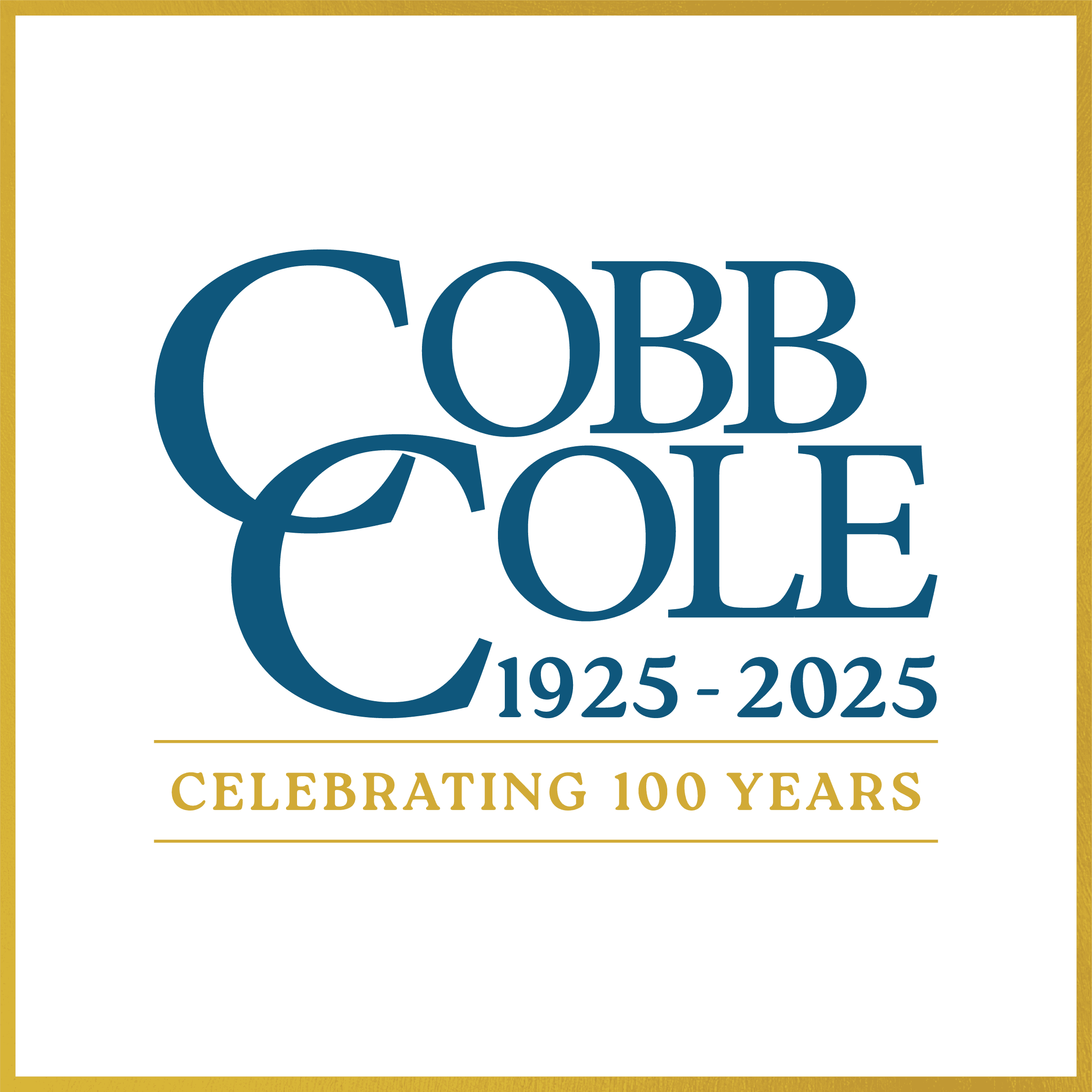Many employment and labor law attorneys specialize in legal workplace matters, serving both employers and employees. Cobb Cole provides robust, comprehensive legal services for employers only, including protecting and defending them in collective bargaining agreements (CBAs).
If you’re a Central Florida employer, you know that Florida’s labor laws are complex, with much of the focus on the rights of employees, particularly in labor discussions. However, employers have rights, too. Our skilled labor relations attorneys advise employers in a broad range of industries and sectors, whether fully unionized, non-union, or somewhere in between. Our strategic guidance in assessing and managing vulnerabilities and strengthening employee relations reflects collective expertise in employment and labor law matters and how they’re enforced.
What are Collective Bargaining Agreements in Florida?
Collective bargaining allows employees to participate, through their chosen representative, in establishing their wages and employment conditions. Employers and employees negotiate with each other to reach a collective bargaining agreement that defines employment conditions, including details like wages, hours, vacation time, and benefits, including retirement funds.
Other details can include:
- Strikes and lockouts
- Working conditions
- Disciplinary procedures
- Management rights
- Layoff and termination policies
- Leave policies
CBAs are designed to improve employee processes, policies, and rules, and each objective in the agreement deals with varying aspects of an employee’s role in the company. They benefit employers by building trust and mutual respect between the company and employees. They can also increase stability and productivity in labor relations.
Understanding the Legalities of Collective Bargaining Agreements
Collective bargaining agreements are legally binding contracts. If employers or employees violate one or more of the terms in the agreement, consequences can be severe and costly.
- If an employee violates the CBA, an employer’s first step is typically a disciplinary measure, including suspension, probation, or termination. Some organizations implement a “strike” system, where employees have a set number of violations before disciplinary action is taken.
- If the employer violates a CBA, a common practice is to have a review board consider and investigate any employee complaints. Some businesses have disciplinary processes similar to those for employees. From a legal standpoint, when an employee can’t get a resolution within the company, a CBA is considered sufficient contractual proof for bringing a lawsuit against the employer.
In the US, the National Labor Relations Act (NLRA) protects the rights of employees to engage in collective bargaining activities, including the right to:
- Form and join unions
- Discuss pay and other grievances
- Strike
Federal, state, and local government employees and agricultural laborers are excluded from the NLRA. The National Labor Relations Board (NLRB) regulates labor practices and collective bargaining under the NLRA. As such, it’s responsible for tasks like supervising union elections and ensuring employees aren’t pressured to vote for or against unionization.
Florida’s collective bargaining statute for organized labor covers public employee rights, including the right to strike, civil remedies, and other provisions such as unfair labor practices.
Strategic Considerations in Collective Bargaining
There are several types of collective bargaining, including the following:
- Composite bargaining focuses on issues outside compensation, including job security, working conditions, and company policies.
- Concessionary bargaining is when workers make concessions in exchange for job security. It is a common tactic during economic downturns or recessions.
- Distributive bargaining benefits one party financially at the expense of the other, such as higher salaries or increased bonuses.
- Integrative bargaining is often referred to as win-win bargaining, with both parties standing to lose or gain in the terms under negotiation.
- Productivity bargaining addresses the link between employee compensation and productivity. A common argument for higher wages and greater benefits is that they increase productivity, which, in turn, increases revenue and value for the employer.
Collective bargaining is initiated when employee contracts are up for renewal or when the employer makes changes to the contract or workplace, such as:
- Employment conditions
- Wages and base and overtime pay
- Working conditions and workplace rules
- Work hours and shift lengths
- Healthcare and retirement benefits
- Paid holidays, sick leave, and vacations
The goal for employers when negotiating a collective bargaining agreement should be to engage in constructive talks that lead to agreements that reflect organizational objectives and respect workers’ rights and worth.
Collective bargaining steps generally include:
- Identifying issues and preparing demands, including grievances like low salaries, hours, and abusive management practices.
- Multiple negotiation meetings as the two sides attempt to find common ground.
- Reaching a tentative agreement to be presented to employees and the employer for review. Last-minute issues are typically raised as details are hammered out.
- Agreement acceptance and ratification. The approved CBA is submitted to employees or union members, who then vote for or against it.
- Agreement administration. Once ratified, employees and union leaders monitor performance to ensure employers are abiding by the agreement’s terms and conditions.
There are times when the parties are unable to reach an agreement before the negotiation period expires. In those cases, workers might go on strike until their demands are met. Working with a qualified employment and labor law attorney can help your company avoid this outcome, which can have significant economic, operational, and regulatory ramifications.
Effective Employment and Labor Law Strategies With Cobb Cole
Are you preparing to negotiate a collective bargaining agreement? Do you need guidance on potential changes to an existing CBA? Cobb Cole’s Employment and Labor Law attorneys are accomplished in helping businesses navigate impasses and negotiate new terms. We help employers form strategies to break deadlocks constructively while maintaining a respectful and balanced relationship with labor representatives.
Our firm’s approach to labor relations prioritizes your organization’s objectives, ensuring negotiations align with its goals and operational necessities. Our attorneys are adept at facilitating negotiations that foster a collaborative environment and encourage mutually beneficial agreements.
Contact us online or call 386-255-8171 to learn more about crafting a collective bargaining agreement that is both fair and conducive to your business’s sustained success.

